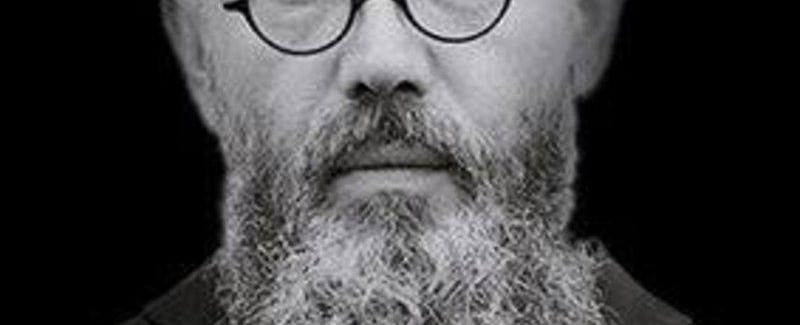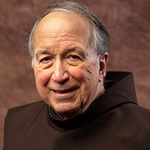Saint Maximilian Mary Kolbe, OFM Conv: Martyr of Charity

Eighty years ago on August 14, 1941, Fr. Maximilian Kolbe, OFM Conv., was killed with a phenol injection inside a starvation cell of Block 11 of the Nazi concentration camp at Auschwitz.
Determined to become a Franciscan
Saint Maxmilian was born Raymond Kolbe in 1894 at Zdunska Wola, an industrial town near Lodz, Poland (then part of the Russian Empire), to a devout but poor family. As a teenager, he determined to become a Franciscan and so illegally crossed the border into the Austro-Hungarian Empire where he studied at the Conventual Franciscans' minor seminary in Lvov and entered the Order in 1910.
Mobilizing Catholics to profess their faith
Friar Maximilian was a brilliant student who excelled in what we would call today STEM subjects; after his profession, he was sent for studies in Rome, where he earned doctorates in both philosophy and theology. During his years in Italy, he witnessed violent anticlerical demonstrations and became convinced of the need to mobilize Catholics to profess their faith in the modern world; he organized the Militia of the Immaculate, whose members would consecrate themselves to Mary to work for the conversion of sinners and those opposed to the Church.
Advancing the Militia of the Immaculate
When Kolbe returned to Poland in 1919, he embarked on a whirlwind of activities to advance his Militia, publishing a monthly magazine that quickly became very popular. He founded the monastery of Niepokalanow ("City of the Immaculate") near Warsaw, which by the late 1930s housed a huge self-sustaining Franciscan community of over 700 members, operating a minor seminary and putting out a variety of publications.

Fr. Kolbe’s spartan room in the monastery of Niepokalanow.
Coming under Nazi suspicion
When Poland was occupied at the beginning of World War II, the monastery, which was housing a large number of refugees, including many Jews, fell under suspicion by the Nazis.
Volunteering to take another prisoner’s place
In 1941, Kolbe was arrested by the Gestapo and deported to Auschwitz. In July, a man from his barracks escaped: in retaliation, the camp commandant selected 10 prisoners to be starved to death. One of these, a young solider, cried out in agony for his wife and children. Maximilian stepped forward and volunteered to take his place and so was consigned to the starvation bunker, where two weeks later he was finally killed by lethal injection.

Fr. Kolbe saved the life of Sergeant Franciszek Gajowniczek, a fellow prisoner at Auschwitz. To the astonishment of prisoners and captors, Maximilian stepped forward from the ranks and stood before the Commandant. The commandant asked, "What does this Polish pig want?" Father Kolbe pointed to the Polish sergeant, saying, "I am a Catholic priest. I would like to take his place, because he has a wife and children." Gajowniczek, later in life, became a lay missionary. He was present at Fr. Kolbe's canonization in 1982. (Auschwitz file photo, NN, public domain, via Wikimedia Commons)

This is the cell in Block 11 at Auschwitz where Fr. Kolbe died.
Canonized in 1982
Fr. Maximilian was canonized by Pope John Paul II in 1982, who designated him "a martyr of charity."

The Basilica of the Immaculate at Niepokalanow was built between 1948 and 1954.
Wisdom from Saint Maximilian's writings:
Let us remember that love lives through sacrifice and is nourished by giving. . .Without sacrifice there is no love.
Do not forget that holiness consists not in extraordinary actions, but in performing your duties towards God, yourself, and others well.
Dominic Monti, OFM
Professor of Franciscan Research in the Franciscan Institute of St. Bonaventure University
Dominic V. Monti, OFM, is a Franciscan Friar of Holy Name Province (USA) and currently professor of Franciscan Research in the Franciscan Institute of St. Bonaventure University. He devoted the greater part of his ministry to teaching the History of Christianity, in particular the history of the Franciscan movement. He has contributed two volumes to the Works of St. Bonaventure series and is author of Francis & His Brothers, a popular history of the Friars Minor.

